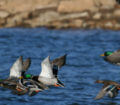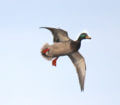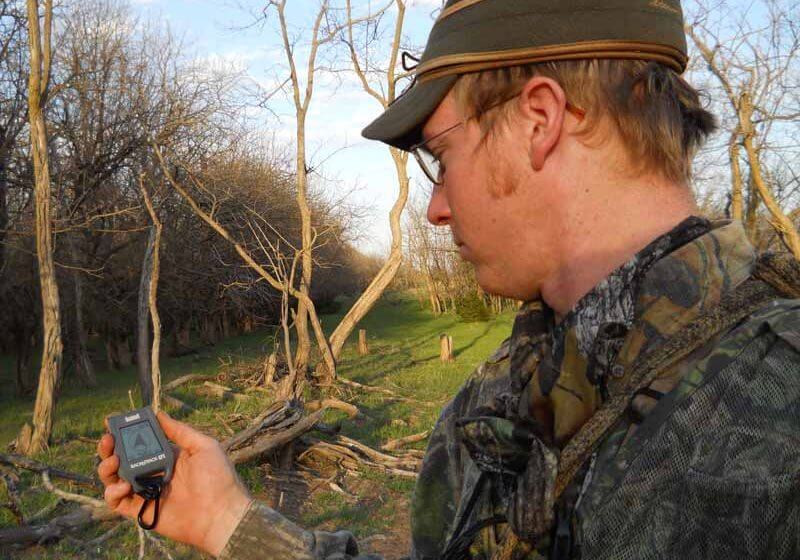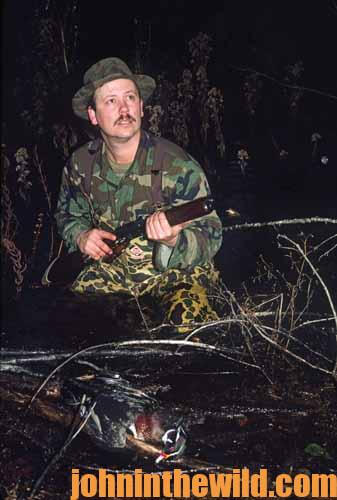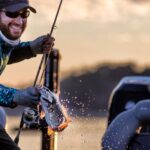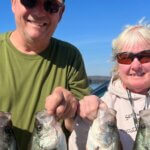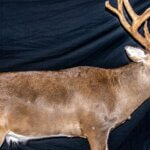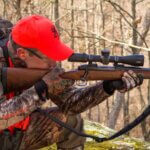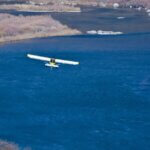Editor’s Note: Okay, in my opinion, I consider hunting ducks a different sport than shooting ducks. Shooting ducks means you go to a body of water, put out a bunch of decoys, have a retriever in the blind and wait for the ducks to fly by, so you can call them to within gun range. Hunting ducks involves bushwhacking them, learning where ducks live, eat and sleep and developing a stalking strategy to get in close enough to the ducks to jump shoot them when they come off the water. I’m not brazen enough to declare one technique better than the other. Actually I use both tactics throughout the season. But because duck shooting has become so sophisticated in many areas, duck hunting/ bushwhacking has begun to fade from popularity. Also, if you like to eat ducks as well as shoot ducks, there’s not a more-effective technique to bring waterfowl home for the table than bushwhacking.
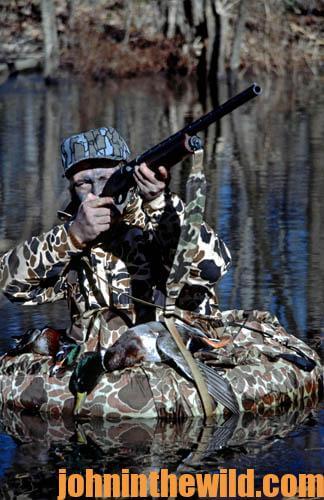 Having a hand-held Global Positioning System (GPS) today when you duck hunt will spell success on the water, just as it will when you hunt for deer and turkey. With a GPS, like those made by Magellan (http://www.magellangps.com), Garmin (https://buy.garmin.com) and Lowrance (http://www.lowrance.com/en-US/Products/GPS-Handheld/), the top-three rated GPS units, you can mark the location where you find the ducks as a waypoint to enable you to return to that spot. Too, you can mark the route to take to where you want to hunt on your hand-held GPS. Then you can use that route before daylight or return to your vehicle after dark. Reaching the site you want to hunt before the ducks arrive in the morning to feed or finding your way out of the woods after dark once you’ve hunted the roost will make your duck hunt more successful.
Having a hand-held Global Positioning System (GPS) today when you duck hunt will spell success on the water, just as it will when you hunt for deer and turkey. With a GPS, like those made by Magellan (http://www.magellangps.com), Garmin (https://buy.garmin.com) and Lowrance (http://www.lowrance.com/en-US/Products/GPS-Handheld/), the top-three rated GPS units, you can mark the location where you find the ducks as a waypoint to enable you to return to that spot. Too, you can mark the route to take to where you want to hunt on your hand-held GPS. Then you can use that route before daylight or return to your vehicle after dark. Reaching the site you want to hunt before the ducks arrive in the morning to feed or finding your way out of the woods after dark once you’ve hunted the roost will make your duck hunt more successful.
Because I generally hunt in a floodplain where beavers control the water level, I have a good chance of inadvertently stepping into a beaver run or an old stump hole, tripping over a log or somehow winding up face first in the water when I head to my site, pick up my ducks and/or leave the water. Often, I’ll become disoriented and won’t remember which way I need to travel. That’s when my GPS saves the day. Using a hand-held GPS also drastically can cut down on your scouting time. I know some bushwhackers who rent a private plane before they duck hunt and fly over the areas they want to hunt. Once they locate the places where the ducks hold, they mark those spots as waypoints on their GPS receivers and also designate the access roads they’ll have to use to get close to the ducks as waypoints. Then, when on the ground, they know where to park their vehicles and where to go to take the ducks.
You have to adapt your bushwhacking ducks’ techniques to the type of terrain and waterways that you hunt. Primarily, I’ve referred to floodplain hunting, however, in more-mountainous terrain, you may find bank banging more productive. If creeks or small streams run through your hunting area, you’ll notice that when the main water on a river or a lake becomes really rough or ices-up, the ducks will move into those small streams and creeks where the water still flows to avoid the rough weather. Most of the streams and creeks I hunt have bends, eddy holes and small pockets in them where I’ll find slack and eddy water. Ducks can hold out of the weather and often feed in these places. Generally each year when the weather gets bad on the main water, these smaller, slack-water areas will hold good numbers of ducks.
If the region you hunt for ducks has drop-offs as much as 3 feet or more from the edge of the creek bank down to the water where the ducks hold on the land you hunt, you can’t beat bank-banging tactics for bagging quacks. If you’ll stay behind the bank and move close to the creek, you usually can hear the ducks feeding in those slack-water areas. By moving slowly and quietly, you either can belly crawl or stay low and move up to the edge of the creek while you remain hidden behind the bank. Once you come up over the lip of the creek, and the ducks see you, they’ll flush, and you can take them.
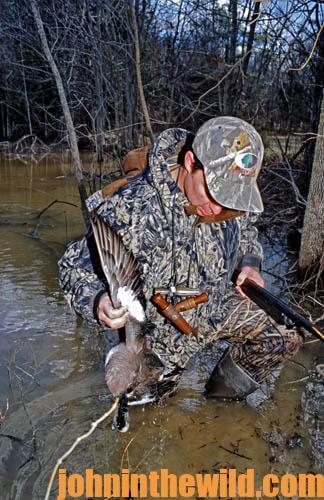 Before you shoot the ducks, you need a recovery strategy already in place. The ducks that you shoot when you bank-bang often will fall in the creek or on the opposite bank. Know where you can cross the creek, where you can wade the creek, and where the ducks will float down the creek into an eddy area where you can pick them up. Here’s where a belly boat comes in handy. I like my Bass Pro Shops (http://www.basspro.com/) boat. An effective bank-banger pre-plans a duck-recovery strategy as well as a hunting strategy and getting off the shot.
Before you shoot the ducks, you need a recovery strategy already in place. The ducks that you shoot when you bank-bang often will fall in the creek or on the opposite bank. Know where you can cross the creek, where you can wade the creek, and where the ducks will float down the creek into an eddy area where you can pick them up. Here’s where a belly boat comes in handy. I like my Bass Pro Shops (http://www.basspro.com/) boat. An effective bank-banger pre-plans a duck-recovery strategy as well as a hunting strategy and getting off the shot.
To learn some recipes for preparing ducks for the table, go to “The Best Wild Game & Seafood Cookbook Ever: 350 Southern Recipes for Deer, Turkey, Fish, Seafood, Small Game and Birds” at http://amzn.to/WkbLRg. For more information on hunting, check out John E. Phillips’ books at www.amazon.com/author/johnephillips for print, Kindle and Audible books and www.barnesandnoble.com.
Next: Why Canoe for Quacks and What Tips Will Help You Bushwhack Stream Ducks

